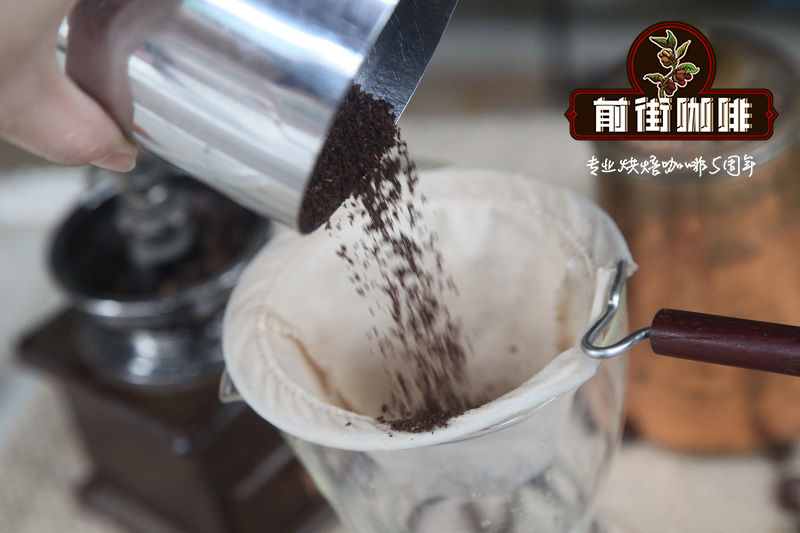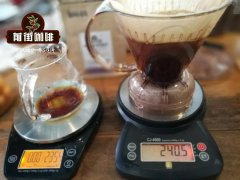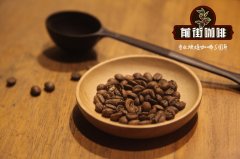Yemeni mocha coffee planting altitude picking and processing situation _ which brand of Yemeni mocha coffee tastes good

Professional coffee knowledge exchange more coffee bean information please follow the coffee workshop (Wechat official account cafe_style)
Mocha coffee, as its name implies, comes from a port town on the Red Sea in ancient Yemen. Coffee produced in ancient Yemen is exported to Europe and other parts of the world through here. It is the earliest place to export coffee and is the ancestor of coffee trade, hence its name. Yemenis have had the habit of drinking coffee since ancient times, which has created a coffee culture that is very different from that of other parts of the world. Yemeni mocha coffee is the oldest coffee in the world, and Yemen is one of the first countries in the world to grow coffee. It is said that as early as 1561 AD, Zheng he brought back a lot of mocha coffee to pay tribute to the Ming emperor. Mocha coffee is famous overseas, mainly because it is still grown in a traditional way that has been left over for hundreds of years, and local farmers still use donkeys and camels to pull stone mills to deal with coffee beans. Compared with countries that use advanced machinery to process coffee beans, mocha coffee is the only living record in the history of coffee in the world.
● Yemeni mocha coffee mainly comes from the mountain depression of 3000 meters above sea level in western Yemen, where dry and rainy, sunny, rugged mountains, thin air, unique geographical location and climatic conditions make mocha coffee unique taste, rich aroma, slightly sour, fragrance overflowing. The local farmers carved out fertile terraces on the hillside. Today, coffee is still grown in these areas in the same way as it was hundreds of years ago, relying entirely on artificial labor, never using chemical fertilizers and pesticides, and relying on sunshine, Rain Water and unique soil to grow pure natural mocha coffee.
The picking and processing of ● mocha coffee is also done entirely by hand. The preliminary processing of coffee beans is made by drying and drying naturally in the sun. This method is the most primitive and simple, without any mechanical equipment or cleaning, so sometimes there are a small amount of sand and pebbles in Yemeni coffee beans. The roasting process of mocha coffee is done entirely by hand, and the heat depends on experience and feeling. Every process from planting, picking to roasting is done in the oldest way, and although the roasted beans are of different colors, it is this aroma mixed with rugged and wild flavor that makes the unique mocha coffee. No wonder some people call mocha "the diamond in the crown of coffee".
● Yemeni coffee is collectively called mocha according to its slightly different taste and flavor. It is mainly distributed in the mountains around the capital Sana'an and the high-altitude mountains between Sana'an and Hodeida province. Yemeni mocha coffee has small fruit, high density, high acidity and unique aroma. Compared with other famous coffee varieties, it has a strong sour taste, as well as a mixture of malt, nuts, wine, chocolate and other spices. This is the unique charm and long history of mocha coffee.
● Yemen Mocha Coffee Brand recommendation
The Yemeni mocha beans baked in Qianjie Coffee are fully guaranteed in terms of brand and quality. And more importantly, the performance-to-price ratio is extremely high, a pack of 227 grams, the price is only 85 yuan. According to the calculation of 15 grams of powder per cup of coffee, a bag of coffee can make 15 cups of coffee for less than 6 yuan each, which is recommended by conscience compared to the price of tens of yuan a cup sold in a coffee shop.
Qianjie coffee: Guangzhou bakery, the store is small but a variety of beans, you can find a variety of unknown beans, but also provide online store services. Https://shop104210103.taobao.com
Important Notice :
前街咖啡 FrontStreet Coffee has moved to new addredd:
FrontStreet Coffee Address: 315,Donghua East Road,GuangZhou
Tel:020 38364473
- Prev

Picture of Yemeni mocha Coffee: introduction to the planting and treatment of mocha Coffee beans in Yemen
Professional coffee knowledge exchange more coffee bean information please follow the coffee workshop (Wechat official account cafe_style) the Yemeni national micro is made up of eagles and flags. The eagle symbolizes power, and the shield on its chest is painted with the famous monument Malibu Dam and coffee trees. The Republic of Yemen is written on the ribbon in Arabic. Mocha is a port in the Arab Republic of Yemen, where people put the Arab region
- Next

Yemeni mocha coffee development history _ reasons for good quality of Yemeni mocha coffee _ characteristics of mocha coffee beans
Professional coffee knowledge exchange more coffee bean information please follow the coffee workshop (Wechat official account cafe_style) to ask do you know which country coffee originated? There is bound to be a stir of controversy. It is said that coffee was first found in Ethiopia, but at the same time, Ethiopia's neighbor, Yemen, was also growing and drinking coffee. The history of coffee dates back to centuries
Related
- Detailed explanation of Jadeite planting Land in Panamanian Jadeite Manor introduction to the grading system of Jadeite competitive bidding, Red bid, Green bid and Rose Summer
- Story of Coffee planting in Brenka region of Costa Rica Stonehenge Manor anaerobic heavy honey treatment of flavor mouth
- What's on the barrel of Blue Mountain Coffee beans?
- Can American coffee also pull flowers? How to use hot American style to pull out a good-looking pattern?
- Can you make a cold extract with coffee beans? What is the right proportion for cold-extracted coffee formula?
- Indonesian PWN Gold Mandrine Coffee Origin Features Flavor How to Chong? Mandolin coffee is American.
- A brief introduction to the flavor characteristics of Brazilian yellow bourbon coffee beans
- What is the effect of different water quality on the flavor of cold-extracted coffee? What kind of water is best for brewing coffee?
- Why do you think of Rose Summer whenever you mention Panamanian coffee?
- Introduction to the characteristics of authentic blue mountain coffee bean producing areas? What is the CIB Coffee Authority in Jamaica?

